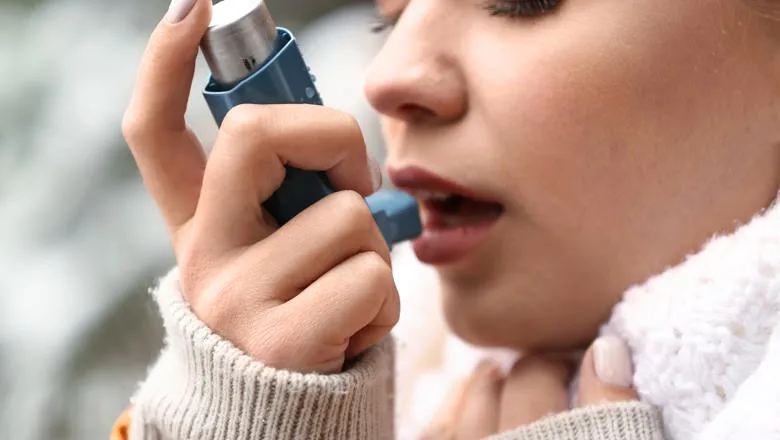Biological therapies such as benralizumab have revolutionised severe asthma care in many ways, and the results of this study show for the first time that steroid related harm can be avoided for the majority of patients using this therapy.
Professor David Jackson, Professor of Respiratory Medicine
08 December 2023
Major breakthrough for severe asthma treatment
A landmark study led by a King's academic has shown that severe asthma can be controlled using biologic therapies, without the addition of regular high-dose inhaled steroids which can have significant side effects.

The findings from the multinational SHAMAL study, published in The Lancet, demonstrated that 92 per cent of patients using the biologic therapy benralizumab could safely reduce inhaled steroid dose and more than 60 per cent could stop all use.
The study’s results could be transformative for severe asthma patients by minimising or eliminating the unpleasant, and often serious, side effects of inhaled steroids. These include osteoporosis which leads to increased risk of fractures, diabetes and cataracts.
Asthma is one of the most common respiratory diseases worldwide - affecting almost 300 million people - and around 3 to 5 per cent of these have severe asthma. This leads to daily symptoms of breathlessness, chest tightness and cough, along with repeated asthma attacks which require frequent hospitalisation.
The SHAMAL study was led by Professor David Jackson, Professor of Respiratory Medicine at King's and head of the Severe Asthma Centre at Guy's & St Thomas' NHS Trust.
Benralizumab is a biologic therapy that reduces the number of inflammatory cells called eosinophil. This is produced in abnormal numbers in the airway of patients with severe asthma and is critically involved in the development of asthma attacks. Benralizumab is injected every four to eight weeks and is available in specialist NHS asthma centres.
The SHAMAL study took place across 22 sites in four countries - the UK, France, Italy and Germany.
The 208 patients were randomly assigned to taper their high dose inhaled steroid by varying amounts over 32 weeks, followed by a 16 week maintenance period. Approximately 90 per cent of patients experienced no worsening of asthma symptoms and remained free of any exacerbations throughout the 48 week study.
Similar studies to SHAMAL will be necessary before firm recommendations can be made regarding the safety and efficacy of reducing or eliminating high dose steroid use with other biologic therapies.
The study was funded by AstaZeneca and carried out by researchers at renowned universities including Queens University Belfast, Université Paris-Saclay and Trinity College Dublin.
